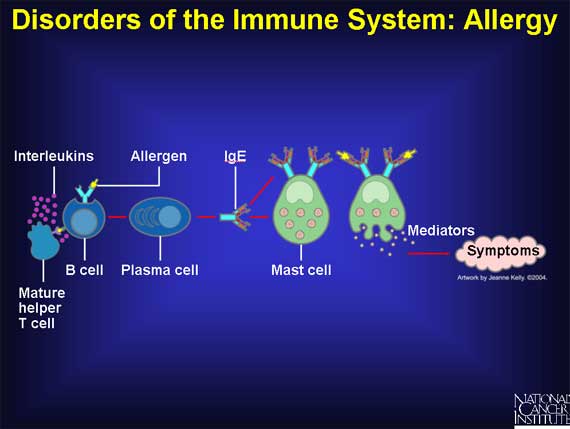|
When your immune system malfunctions, it can unleash a torrent of disorders and diseases.
One of the most familiar is allergy. Allergies such as hay fever and hives are related to the antibody known as IgE. The first time an allergy-prone person is exposed to an allergen--for instance, grass pollen--the individual's B cells make large amounts of grass pollen IgE antibody. These IgE molecules attach to granule-containing cells known as mast cells, which are plentiful in the lungs, skin, tongue, and linings of the nose and gastrointestinal tract. The next time that person encounters grass pollen, the IgE-primed mast cell releases powerful chemicals that cause the wheezing, sneezing, and other symptoms of allergy.

< Previous | Index | Next Slide > |